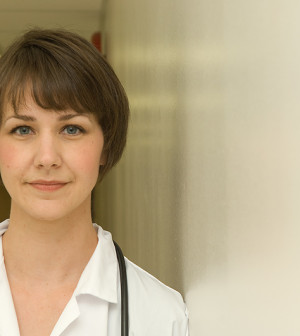- 7 Best Breads for Maintaining Stable Blood Sugar
- Gelatin vs. Collagen: Which is Best for Skin, Nails, and Joints?
- The Long-Term Effects of Daily Turmeric Supplements on Liver Health
- Could Your Grocery Store Meat Be Causing Recurring UTIs?
- Are You Making This Expensive Thermostat Error This Winter?
- Recognizing the Signs of Hypothyroidism
- 10 Strategies to Overcome Insomnia
- Could Artificial Sweeteners Be Aging the Brain Faster?
- Techniques for Soothing Your Nervous System
- Does the Water in Your House Smell Funny? Here’s Why
Many Seniors With Cancer Use Alternative Medicines: Study

Many elderly cancer patients use alternative medicines, including some that could interfere with their treatment, a new study shows.
Even though alternative medicines are marketed as “natural,” many contain active ingredients that can react with other therapies, the researchers explained.
The study authors also found that many of these patients don’t tell their doctors they are using complementary or alternative medicines (CAMs).
“Currently, few oncologists are aware of the alternative medicines their patients take,” study author Ginah Nightingale, an assistant professor at Thomas Jefferson University in Philadelphia, said in a university news release.
“Patients often fail to disclose the CAMs they take because they think they are safe, natural, non-toxic and not relevant to their cancer care, because they think their doctor will disapprove, or because the doctor doesn’t specifically ask,” she said.
Nightingale and her colleagues surveyed over 200 elderly cancer patients (aged 61 to 98), and found that 26 percent took alternative medicines at some point in their cancer treatment. Sixty-eight percent of those who used alternative medicines were older than 80, they found.
Commonly used alternative medicines included products for the eye disease macular degeneration and joint health, as well as stomach probiotics and mega-dose vitamins and minerals, the study said.
The findings were published online recently in the Journal of Geriatric Oncology.
The researchers didn’t examine the potential harm posed by these alternative medicines, but “we know that some can have a biochemical effect on the body and other drugs,” Nightingale said.
A number of alternative medicines are known to interfere with cancer treatments. For example, St. John’s wort can reduce the effectiveness of some cancer therapies, and other alternative medicines can interfere with anesthesia during surgery for cancer, the researchers said.
That’s why it’s important for doctors to ask about all of the medications an older cancer patient might be taking, including CAMs, Nightingale recommended.
“Clear and transparent documentation of CAM use should be recorded in the patient’s medical record. This documentation should indicate that patient-specific communication and/or education was provided so that shared and informed decisions by the patient can be made regarding the continued use of these medications,” she explained.
More information
The U.S. National Center for Complementary and Integrative Health has more about complementary health products and methods.
Source: HealthDay
Copyright © 2026 HealthDay. All rights reserved.










